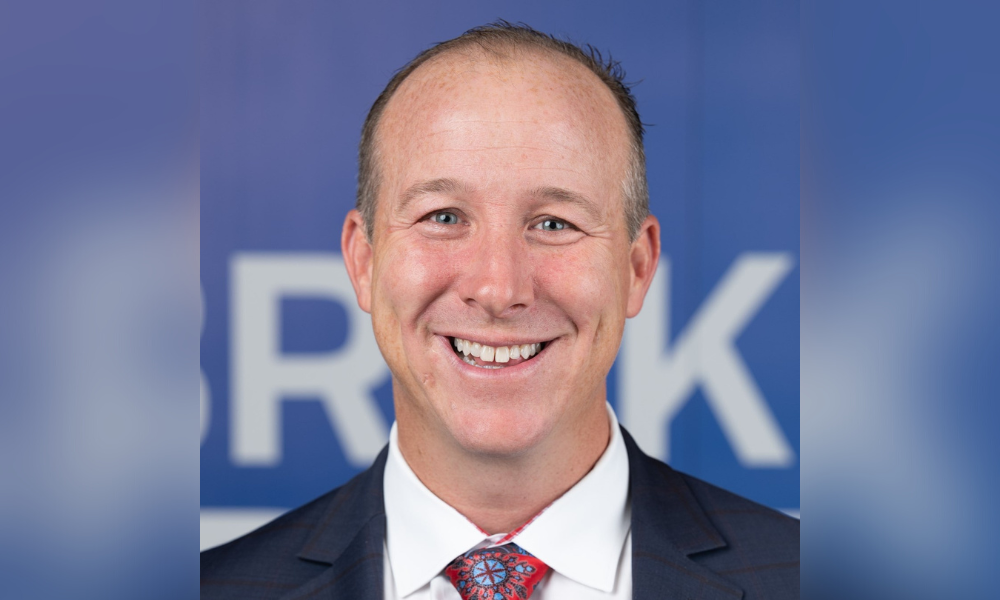Top producers share tips ahead of industry upswing

While not the best scenario in which to be working, the housing market slowdown has yielded one benefit – time for broker-owners to contemplate how to budget and plan for growth once the climate improves.
Prominent industry practitioners shared their insights during last month’s Hall of AIME conference staged in Naples, Fla., designed to showcase top producers. Tactics for growth emerged during one panel discussion on how to recession-proof one’s business, which was moderated by Tom Ahles (pictured top), president of growth at AIME.
How do you scale a business for growth?
“Looking ahead 12 to 18 months, how are you budgeting for or planning to scale from a cost perspective?” Ahles asked the panelists.
Jonathon Haddad (pictured immediately below) president of Next Door Lending, chose to answer with an anecdote illustrating the need to have the best people on one’s team. He related the story of a colleague who had begun to see growth -- $120,000 one year alone, he said. Gaining industry attention, the broker began to be approached from all sides with offers from people promising to increase profit even more exponentially.

Do I need an administrative assistant?
“There was this one admin who had been around 20 years,” Haddad said. “She said ‘hey, I believe I can take your business to the next level,’” for a salary of $60,000. “He made $120,000, so now he’s investing half his money into it. She said ‘look, if I don’t make you more money than the $60,000, then I’m not worth it – it’s a one-year commitment.’ That next year, he made over $700,000 because he had the right person in his corner. It’s a true story.”
Still, he cautioned the audience: “I’m not saying overspend. But if you have to run a little bit tight right now to have the right people to help you scale, that is what you need. You cannot do it by yourself. I thought I could. I cannot. Nobody can. You need your people and support system, but you need the right people.”
What is a single shoe?
These lean times also present an opportunity to be unique in one’s approach. Trevor Barrett (pictured immediately below), broker and president of Barrett Financial Group, also chose to relay an anecdote. “I had a loan officer who wanted to get into a big builder’s account,” he told the audience. “He found out his shoe size and went to Nordstrom.” He sent the one shoe to the builder with a note attached: “I’d love to talk to you,” Barrett recalled the note reading. “I need five minutes of your time. I’d like to bring the other shoe.”

The anecdote prompted spontaneous laughter and applause from the audience. “We’re all selling the same thing. Be yourself. Be unique. Be different.”
Learning from mistakes
Which isn’t to say mistakes can be made along the way. Haddad shared an early misstep as he began to experience company growth himself. “Stop going after all the shiny stuff,” he said. “Look, you don’t need all these shiny toys. You also have a lot of people pushing you in different directions, especially as you’re starting to grow. The number of people reaching out to you is insane.”
The mistake: “We lost. Money’s gone, it’s out the door,” he said recalling the early misstep. “I’m talking about six figures, potentially even more than that because we thought having these shiny objects would attract loan officers. No it doesn’t. It’s important to have one or two things you can count on up front. However, it’s so, so important to make sure you’re watching who you’re partnering with.”
Is it a good idea to be in a partnership?
Yet it’s fine to take one’s time before agreeing to a partnership, he said. “It’s OK if you need to spend a month, even two months, vetting out a company,” he said. “Tell them you don’t have the time, and you’re not ready to have that conversation yet. It’s OK. Take your time and don’t get so excited. I know it’s easy to get excited – I’m one of those guys who gets fired up every single moment of the day. Talk to people you trust and slow down a bit. It’s very quick to get a bill for $80,000 at the end of the year. What happened? Where did that bill come from?”



